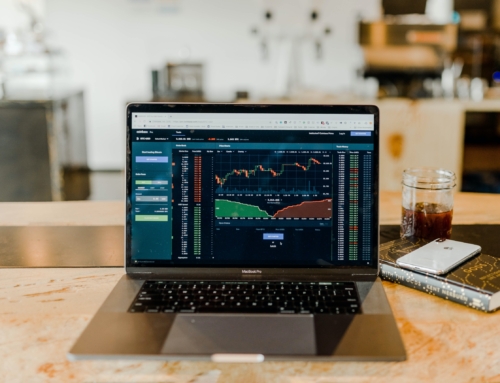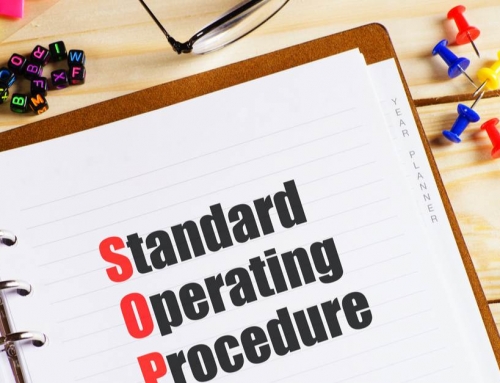Variable Expenses:
The next category is variable expenses. Variable expenses are things like groceries.
Now you will tentatively have similar amounts every single week as you buy your groceries, but there is a certain amount of things that you tend to buy, a certain amount of expenses that you make on every run that you have to the grocery store. So we’ll file it under variable because yes, it may have a similar amount, but it does vary based on week to week.
This is where you can negotiate what you’re spending your money on.
You don’t need to lower the quality of produce and products that you buy, but there may be things that you buy unconsciously.
By focusing in on what you’re purchasing, this can save you spending hundreds or thousands of dollars extra on thing that otherwise you would never buy.
Savings & Investments
The next category we have is savings and investments. Generally what tends to happen in this category is that you have certain amount of money that you’ll save up.
The amount of money that you would be saving up for is either short term investments or long term.
With long term investments, you’d be assessing the contributions you want to make towards your 401K in the US, Superannuation in Australia or any kind of retirement fund that are available in the country where you live.
In the US you can also set up and contribute to Roth IRAs, SEP IRAs and Trust Funds.
You get to be present to the investment you’re making in these, every month or on a yearly basis.
This will give you a sense of where you’re at financially and where you’re heading long term.
Additionally you may have investment accounts. You may be investing in crypto or real estate. You might be investing in ETFs (Exchange-Traded Funds) mutual funds, stocks, bonds or hard commodities like gold and silver.
You’ll want some kind of long term investment play and you want to make sure that you’re tracking it and know what it’s being invested in.
The third thing you’ll want in the savings & investments category, if it’s not already there is something that’s called an emergency fund. An emergency fund is this amount of money that you keep aside for a rainy day.
Life is an unknown. As much as we want certainty, it’s actually uncertain.
That’s why it’s a good thing to have an emergency fund.
An emergency fund for a person that is single or has just one partner with no kids is about 6 months. It’s the amount of money you’d need to live off if you couldn’t work for 6 months.
The amount of money that you have in your emergency fund should be anywhere between three and six months of covering your living expenses if you’re single.
If you lost your job or let’s say the economy did go to hell or AI took over the category of job that you were doing or the specialization you can then go, “Ok fine, I’ll be out of job for about 6 months or could be potentially out of a job for six months, so let me go and give that time to myself to build skills or find a different job or so forth.” Because of that, you want to have a six month fund.
If you have children, it’s recommended to have a yearlong fund.
You want to be secure enough that you can take care of them and be able to rebuild your career without taking much risk. For a family, consider having a 12 month emergency fund.
An emergency fund is very variable. It’s dependent on the person and what their understanding is of money.
A general rule of thumb for a single person or a party of 2, is 3 to 6 months for a good emergency fund.
For a family of 4 people, 12 months of income being in a high yield savings account or something where you can draw easily. But you’re making some interest.
Instead of it being in a savings account that earns very little, put it into an account that yields 4 or 5 %. That way you can at least have some kind of compound interest that you’re gaining every year if you don’t use the emergency fund.
While you might not be getting the best investment return possible, you’re getting some. It’s an emergency fund, which means it needs to be liquid enough to be available for an emergency.
The final kind of investment that you might want is something short term.
You might need a new car or go on a holiday.
You can set up an investment fund to do a down payment and make the monthly payments after that.
If you want to travel and go on vacation, you’ll need to add that into your budget and you’ll need to put money aside for it so you’re not surprised by it when you actually go on the vacation.
This will be the money marked for this vacation or for this car or for this thing that you’re planning to do in three months, six months, nine months, 12 months, two years. It doesn’t matter, but you have a timeline. You may want to start a business, set up a college fund for your kids, or get a degree or do a course you’ve always wanted to do.
This short term fund will get you on track for making it a reality.
Debt Repayment
The next category is debt repayment.
Student loans are consistent payments that you pay monthly, so they go under fixed expenses.
Any other debt that you might have go under this category. You may have a line of credit, or you are paying off auto repairs and parts.
When it comes to credit cards, unless you have 0% APR (Annua percentage rate) or a very low rate, you want to pay them off because the interest rates on them are high (approximately 18 – 24%.)
Miscellaneous
Miscellaneous is the final category. The miscellaneous category depends upon your personal situation. For example, you might have somebody older in your family, your parents or somebody that you’re taking care of. That’s a miscellaneous expense.
You want to be aware of it and you want to make sure that you allocate funds to it so you can take care of them.
There might be gifts or donations that you want to do every single month or a few times throughout the year so you want to ask yourself, “How much money do I want to spend on these gifts or these different donations?” And set aside that amount to be able to do this.
This category is optional and it depends on the person and their desires in life.
You might want to put away money for continuing education purposes. You want to do a specialized certification because it’s a consistent skill development for you.
E.g. As a personal trainer, every 2 years you do your CEU’s (continuing education units) to keep your certification current.
If you don’t plan for these things, you’ll run them on your credit card. If you haven’t planned your budgets right, you might keep running things on your credit card without realizing how much you have put on it and then get surprised by the amount you’re required to pay off.
This category also includes things like pets and pet care, family care and anything else that’s miscellaneous. Purchasing books, audio books and courses on personal development can come in here or any kind of other activities that you do that are not necessarily in any other category. You would put them here because they are one offs. They happen sometimes, but they don’t happen all the time.






























